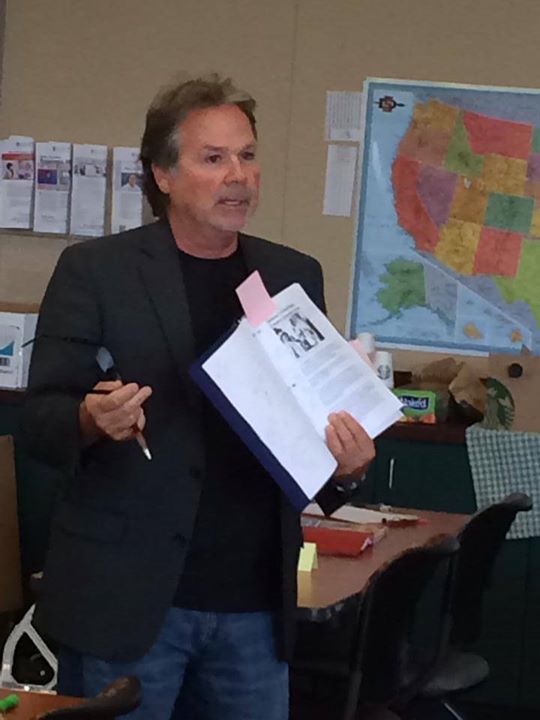Metacognition: It’s Just Good Coaching
 AVID Center
AVID Center  Tuesday, June 2, 2015 at 12:30PM
Tuesday, June 2, 2015 at 12:30PM By Gary Kroesch, AVID Higher Education Consultant
I was a member of the San Diego State University track team, and my coach, Jim Hill, was one of those mentors who appreciated that outstanding performance is as much mental as physical. You can learn how to run better with not only your legs and body, but with your mind, as well. He regularly engaged us—individually and in groups—in a series of reflective metacognitive thinking sessions on our performances and goals. We called them “chalk talks” because they often involved a blackboard.
How did you do? What would you do differently? What goals do you have? He pushed team members to constantly reflect on the fulfillment of our potential—what we were doing and whether it would get us where we wanted to go. Sports are good in that way: focusing the athlete on how best to get from the starting blocks to the finish line. Dr. Hill constantly emphasized the importance of personal reflection with us—not just to make us better athletes, but to make us more thoughtful and mature young men.
Metacognition is as important in the classroom as it is on the field. Teaching students to be independent thinkers, who have self-knowledge and reflect on where they are and where they would like to be, is vital. It’s the teacher’s job to show them how to get there. Improved performance will follow.
Because of the years of pressure from standardized tests, there have been obstacles to implement student reflections on projects, performances, and examinations. Many educators are worried about covering the material and are evaluated on state content standards. Ironically, policies designed to hold schools responsible for raising student achievement often interfere with the opportunity to improve their academic and career success through metacognitive exercises. The last few years, research has been completed showing that metacognition can be taught. We—teachers—need to find ways to incorporate metacognition within the confines of the curriculum.
Many teens and young adults are not mature and not naturally metacognitive, but using metacognitive routines as simple as daily summaries can help all students build metacognition. Everyone—from struggling learners to high performers—can benefit from routine cognitive strategies.
Metacognitive observations and routines help students become aware of and guide their own individual strengths and weaknesses across each aspect of education—as learners, writers, readers, test-takers, and group members. Students need to be encouraged to plan and organize, monitor their own work, direct their own learning, and reflect on their progress along the way. When instructors provide students with opportunities to be aware of their own knowledge and their own thinking, student ownership increases.
We can encourage students to engage in “metacognitive conversations” within themselves—to “talk” themselves into good learning habits by examining the challenges that they encountered, and frankly, how things might be done better next time. For example, after completing a project, performance, term paper, or test, have a series of reflective questions that push students to improve. What did you learn from this assignment? What challenges did you encounter and how did you overcome these challenges? What would you do differently? What did you find most interesting or surprising about this project or assignment? What grade should you earn and why?
It’s our responsibility, as educators, to help our students become ready to make a contribution in college and in their careers. Of course, we are going to emphasize the curriculum, but we can’t assume that everyone knows “how” to learn. Metacognitive skills are useful and necessary for success in school and beyond. As students learn through metacognitive thinking, they are developing essential skills for innovation and problem-solving that can help them throughout their entire lives.
It’s just good coaching.
___________________________________________________________________________________________
 Gary Kroesch is a teacher, college instructor, and AVID staff developer. He is currently a teacher at San Diego State University. For more than 15 years, Gary was the Director of the History-Social Science Project at the University of California, San Diego, managing and directing teacher workshops and professional development with university faculty. He is a national consultant and trainer of trainers for AVID Center. Gary has authored AVID’s history-social science curriculum and contributed to the new AVID for Higher Education curriculum. Gary Kroesch is co-author of two books- What We Need to Face in American Education and Eye of the Beholder: Looking at Primary Sources. Kroesch can be contacted at gkroesch@gmail.com.
Gary Kroesch is a teacher, college instructor, and AVID staff developer. He is currently a teacher at San Diego State University. For more than 15 years, Gary was the Director of the History-Social Science Project at the University of California, San Diego, managing and directing teacher workshops and professional development with university faculty. He is a national consultant and trainer of trainers for AVID Center. Gary has authored AVID’s history-social science curriculum and contributed to the new AVID for Higher Education curriculum. Gary Kroesch is co-author of two books- What We Need to Face in American Education and Eye of the Beholder: Looking at Primary Sources. Kroesch can be contacted at gkroesch@gmail.com.
Want more great blogs from Gary? Start here!
Content, Curiousity, and Relationships
For more on AVID, visit http://avid.org/what-is-avid.ashx.
Reader Comments (2)
Metacognition is always more important than the content. Content is successfully engaged with and remembered because it is the "ground" in which information is planted.
I agree. It is critically important for teachers to teach students to regularly reflect on their own learning if we are to create life-long learners.